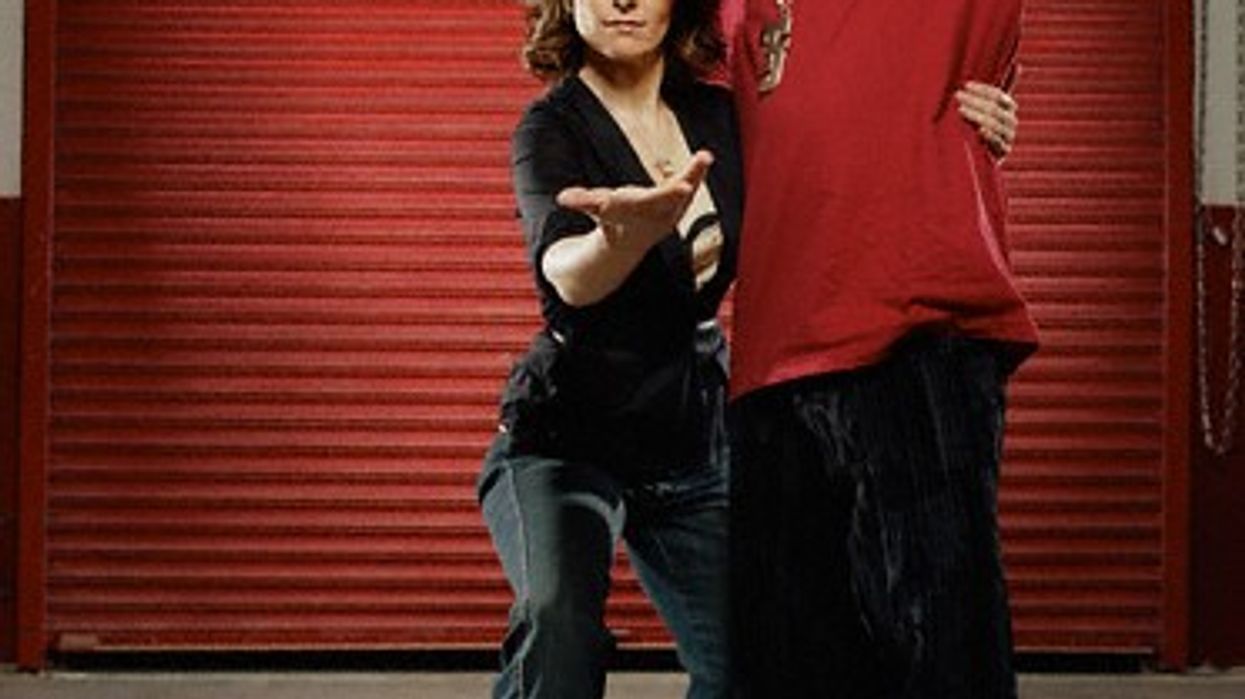An introduction to GOOD's new series from the Institute for the Future
Never Google the word "futurist." Besides the conflation with Futurism, the early 20th century fascist-leaning art movement, the world’s gateways to knowledge are far from instructive on the subject. Clichés and caricatures abound, with media coverage dominated by allusions to crystal balls and prophesy and the messianic predictions of techno-utopians. The general public's sense of what futurists are is not entirely flattering, and rarely accurate.
This is a shame, because during the second half of the 20th century and continuing through the past decade, professional thinking about the future has grown from a niche field dominated by military strategists and predictioneers into a diverse global practice.
The rise of the professional futurist is important. Although humans are capable of thinking through the implications of our actions, we are still notoriously bad at acting in our own long-term best interests, let alone the long-term best interests of society at large. Evidence to this effect continues to mount in fields such as psychology and economics: We value immediate payoffs over larger future benefits; we don't account for the full scope of impact that our actions will have on the lives of others; and we can only think about the future by using the reference frames of the past and the present.
I work at the Institute for the Future, a 42-year-old nonprofit research group. The institute is dedicated to helping people and organizations make better, more informed decisions about the future. We balance public research projects in four main programs (Technology Horizons, Health Horizons, the Ten Year Forecast, and Global Food Outlook) with custom private work that focuses on narrower client interests.
At IFTF, we call what we do “futures work.” Explaining the choice to pluralize “future” will help explain our approach.
As frog design's Jason Severs, in the Design Mind on Good series, noted "Our world is now riddled with what C. West Churchman referred to as ‘wicked problems’: issues like climate change, healthcare, and education that are difficult to address because of their complex interdependencies and changing requirements." At IFTF, we sometimes call these dilemmas, grand challenges, or problematiques.
With these wicked problems, the path to a solution is unclear, because there are so many factors involved. When looking at the multi-variable, massively complex confluence of more than six billion free actors responding to (and continually creating) cultural, economic, and political forces, it is virtually impossible to plot a path to a definite and unambiguous future. And yet, we still use the singular—the future.
Moreover, the future is not an end state. Tomorrow will someday be today, which will fade into yesterday. As our world moves through this unyielding passage of time, how people act in our world will determine just which of many possible futures we end up with.
When we transform our notion of "the future" into visions of alternative futures, we transform our relationship to the very idea of change. We move from thinking we are heading toward an inevitable destination to seeing the world as a dependent, contingent, and therefore actionable, possibility space for us to design. Pluralizing "the future" makes us both more empowered and more responsible for our ultimate outcomes. It may seem like a semantic triviality, but it represents an important shift in thinking.
Even though we can't predict exactly what will happen, we can make reasonable assumptions about what potential futures might look like, and in doing so we can begin to make choices today that can help us bring about the changes we hope to realize in the world.
The Institute for the Future’s work is heavily influenced by disciplines such as anthropology, sociology, and philosophy. By looking at the convergence of social and technological forces that shape our communities, we help individuals and organizations make better, more informed decisions about the future. We use technology and trend maps, short films, collective storytelling games, and experiential futures—full sensory-immersive experiences in which people can participate in provocative visions of possible futures—to render future possibilities more real, knowable, and actionable. Through scenario planning and the crafting of alternative futures, we aim to challenge preconceived models of how the world operates by creating compelling visions of how the world will change, and how we can direct that change. Through "signal scanning," we look for emerging innovative and disruptive practices that could have long-lasting impacts.
Over the coming months, my colleague Jake Dunagan will use this space for a new series about about what we do at IFTF, what it is like to think like a futurist, and, more importantly, how to act like you care about what happens.
Illustration by Claire A. Thompson. Claire is a summer intern at IFTF.









